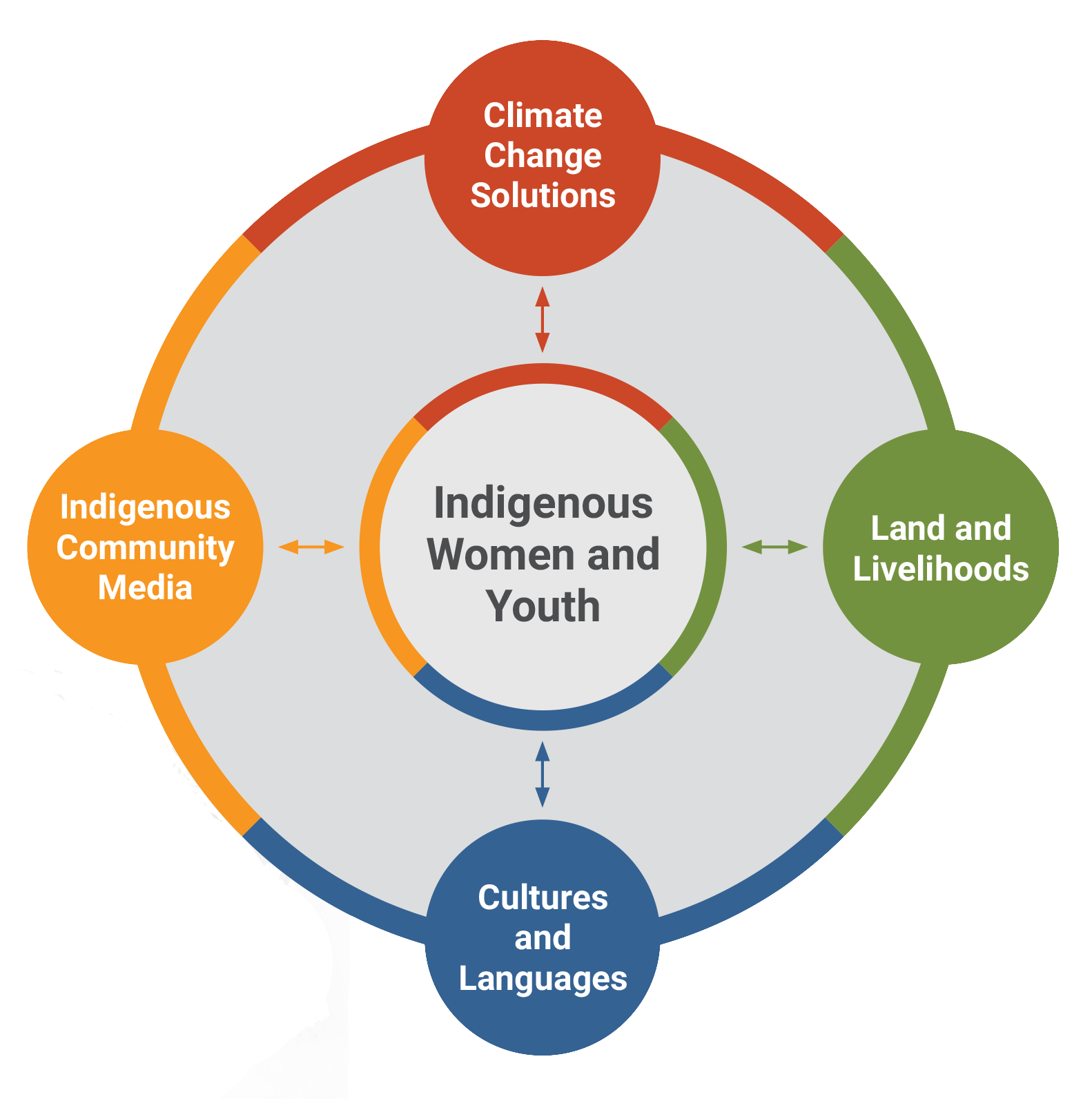
Join us in implementing our vision!
Cultural Survival has been working to decolonize and Indigenize our practices and operations by incorporating Indigenous cosmologies and ways of being into our day-to-day work. We have also been reviewing our internal policies and drafting new documents through this staff-led process and the results are incredible!
Our strategic plan, in full, includes our values and principles, programmatic priorities, and a gender balance policy. Our work is predicated on the implementation of the United Nations Declaration on the Rights of Indigenous Peoples (UNDRIP) where we work to empower Indigenous Peoples as they strive to assert their rights to self-determination and sustain their lands, cultures, and vital ecosystems that are essential to the health of our planet and all living things. Our thematic focus areas center around Climate Change Solutions, Lands and Livelihoods, Cultures and Languages, and Indigenous Community Media. Intersecting these strategies, we work towards an objective of uplifting Indigenous women and relatives of marginalized genders as a crucial cross-programmatic theme of our work. Cultural Survival takes on this work through a four-pronged strategy using Grantmaking, Capacity Building, Advocacy, and Communications.



This new framework builds on five decades of work and strengthens the way we work and engage with Indigenous communities. One example of how we provide holistic and wrap-around support and resources includes: awarding a radio station an Indigenous Community Media Fund grant, co-creating a joint campaign, providing training for women who volunteer at that station, supporting a youth fellow from their community, joint advocacy at the UN on a topic of importance to their community, a grant from the Keepers of the Earth Fund, a feature article in our Cultural Survival Quarterly magazine and website, inviting community leaders to participate in a webinar, and so on.
As leaders in the field, we hope this work will serve as a basis for discussion for other organizations and a model for change in working towards a world that is more inclusive, just, equitable, and respectful of nature and all living things. Our nearly 50-year legacy of advocating for Indigenous Peoples’ rights and supporting Indigenous self-determination, cultures, and political resilience is thanks to you, our community, who help make our work possible.
